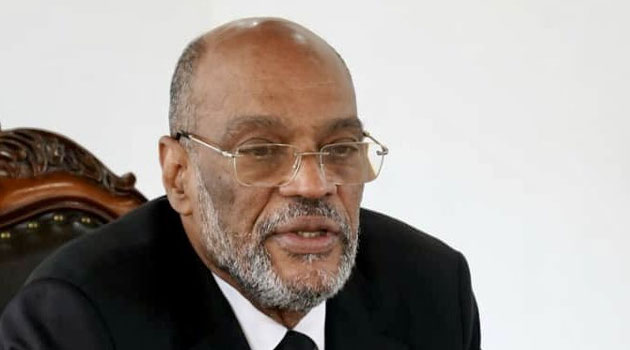15th March 2024
Prime Minister Ariel Henry has announced his resignation following a meeting of CARICOM leaders and other international allies.
“The government that I am leading will resign immediately after the installation of (a transition) council,” Henry said on Monday in a video address from Puerto Rico, as he thanked the Haitian people for the opportunity he had been granted.
“I’m asking all Haitians to remain calm and do everything they can for peace and stability to come back as fast as possible,” said Henry.
His resignation comes after the government extended a state of emergency in the Ouest Department, home to the capital, Port-au-Prince, to 3 April 2024, following a surge in gang violence.
The state of emergency saw attempts to introduce curfews and protest bans with little effect as gangs ramped up violence, including attacking prisons, freeing an estimated 3,500 prisoners.
Prime Minister Henry, seen as lacking legitimacy, had faced pressure to resign amid threats of civil war from gang leaders.
“If Ariel Henry does not resign … we’ll be heading straight for a civil war that will lead to genocide,” said the country’s most well-known gang leader, Jimmy “Barbeque” Chérizier, himself a former police officer.
“We ask the Haitian National Police and the military to take responsibility and arrest Ariel Henry. Once again, the population is not our enemy; the armed groups are not your enemy. You arrest Ariel Henry for the country’s liberation,” said Chérizier.
Despite growing pressure, Henry had so far refused to resign. According to reports, the embattled Prime Minister has been unable to return to his country following a trip to Nairobi, Kenya where he signed an agreement with President William Ruto for the deployment of police officers in the UN-backed mission to Haiti.
However, Henry’s plane was forced to land in Puerto Rico as the main airport in Port-au-Prince remains under siege by gangs. Sheila Angleró Mojica, spokesperson for Puerto Rico’s Governor, confirmed Henry’s arrival in San Juan, while Haiti’s closest neighbour, the Dominican Republic confirmed that requests by the US and Henry for permission for his plane to make an “indefinite layover in Dominican territory” were denied.
The US, as well as other countries and institutions, have evacuated non-essential embassy staff from Haiti amidst escalating gang violence. The Pentagon has also confirmed that it has deployed additional personnel to “augment the security” at its Port-au-Prince Embassy.
The escalating violence in the country has caused the international community to step up efforts to intervene. On Monday 11 March 2024, a meeting chaired by current Chairman, Guyanese President Irfaan Ali was convened in Jamaica by CARICOM and international partners including US Secretary of State Antony Blinken in an effort to eke out a way forward for the troubled Caribbean nation.
The “will seek to advance discussions on support for Haiti as well as the way forward for Haitian governance pursuant to Haitian-led and Haitian-owned solutions which have been facilitated under the guidance of the Caricom Eminent Persons Group (EPG),” said a press release from the office of Prime Minister Andrew Holness.
The meeting saw participation from leaders of The Bahamas, Barbados, Dominica, Grenada, Guyana, Jamaica, and St Vincent and the Grenadines, as well as eight international partner countries and the UN invited by the CARICOM Heads of Government.
Of note however was the physical absence of embattled Prime Minister Ariel Henry, who participated virtually. The Jamaica Observer reported that efforts to get Henry a flight from Puerto Rico were eventually “abandoned “as calls intensified for him to resign”.
“We acknowledge the resignation of Prime Minister Ariel Henry upon the establishment of a transitional presidential council and the naming of an interim Prime Minister,” announced President Ali at the post-meeting press conference.
Barbadian Prime Minister Mia Mottley conveyed that key Haitian figures have reached a broad consensus on the immediate formation of a presidential council. This council would play a pivotal role in appointing a Prime Minister, who, in collaboration with the council, would facilitate the formation of a government. Moreover, Mottley emphasised the necessity of establishing a provisional electoral council to move the country closer toward democratic elections.
President Ali said that the presidential council will comprise two observers and seven voting members including political stakeholders, the private sector, civil society and one religious leader. Members of the council will be ineligible to participate in the next election in the country.
Speaking at the press conference, Secretary of State Blinken announced that the US would increase its support for a UN-endorsed multinational security force aimed at assisting Haitian law enforcement in combating gangs, providing a further US$100mn. Additionally, US$33mn in humanitarian aid will be allocated, raising the total proposed US contribution to the force to US$300mn. However, according to a spokesperson for the UN, as of Monday, only less than US$11mn had been deposited into the UN’s dedicated trust fund.
This is a lead article from Caribbean Insight, The Caribbean Council’s flagship fortnightly publication. From The Bahamas to French Guiana, each edition consists of country-by-country analysis of the leading news stories of consequence, distilling business and political developments across the Caribbean into a single must-read publication. Please follow the links on the right-hand side of this page to subscribe, or access a free trial.
Photo: /FILE/Haiti Premature






